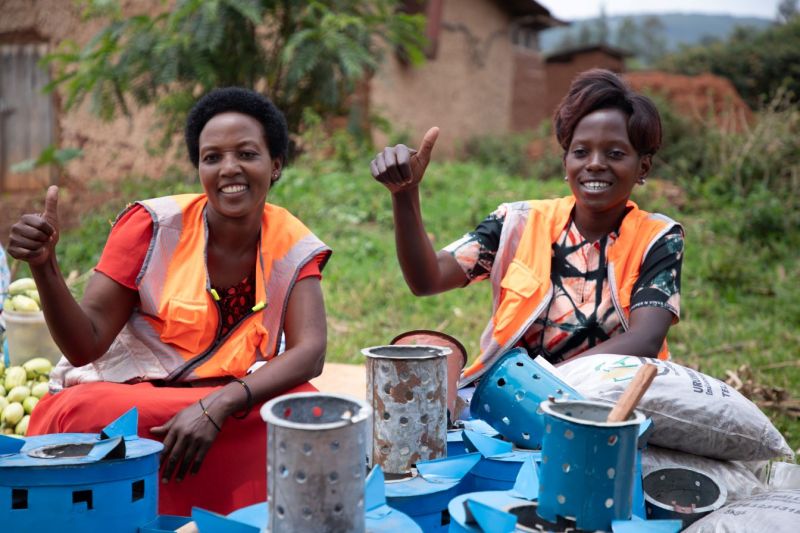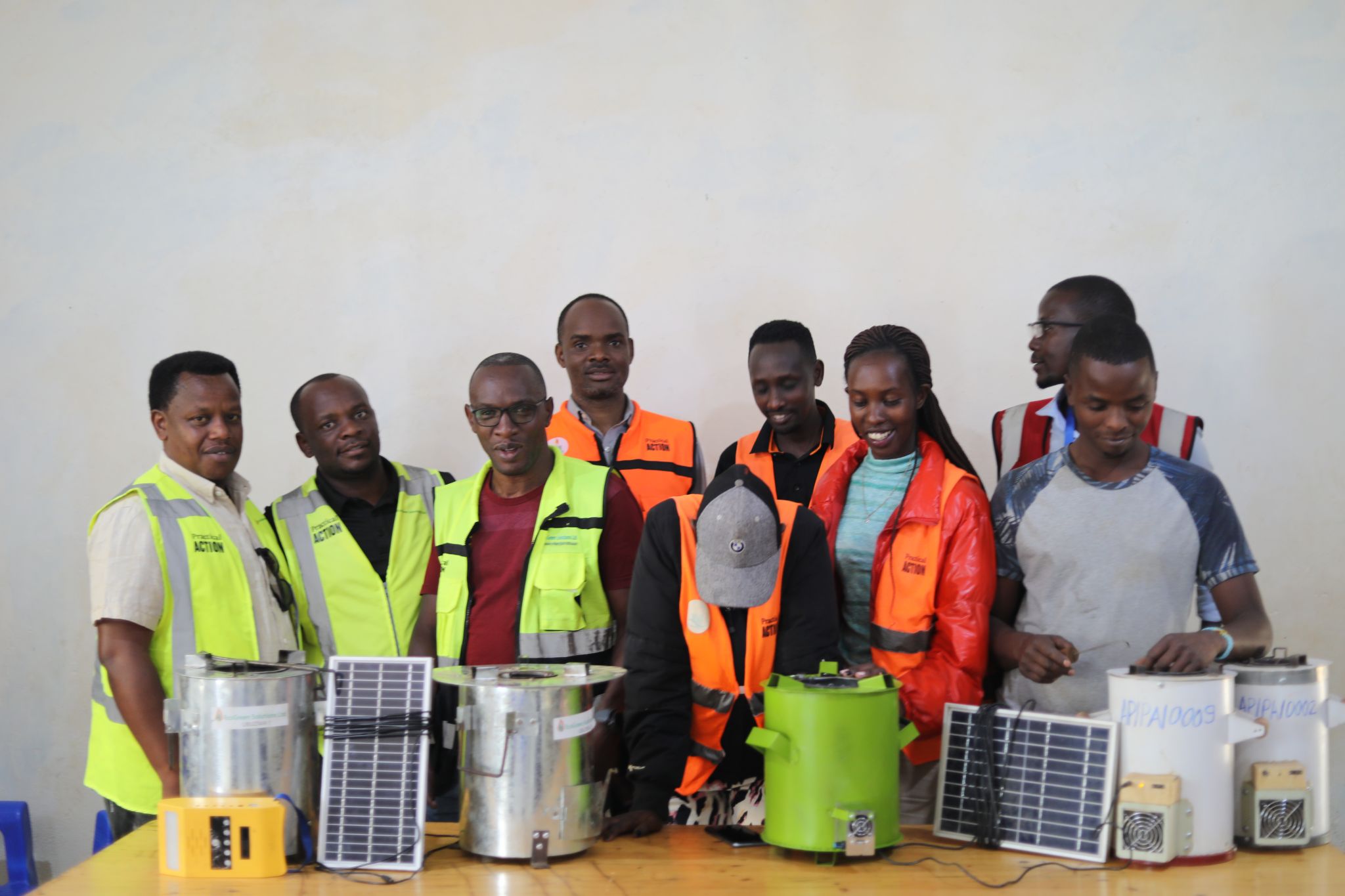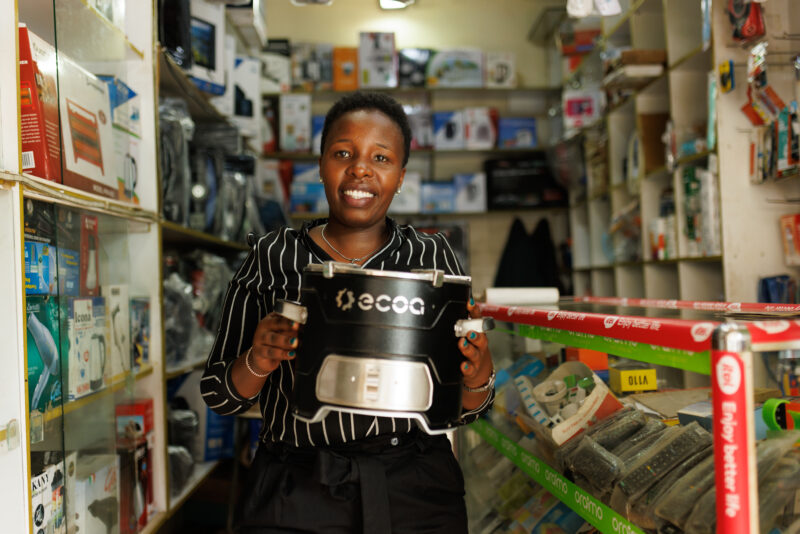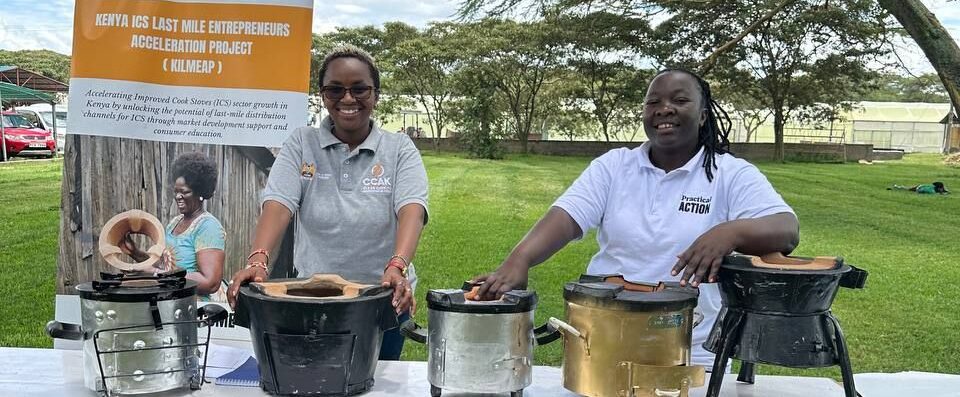
For millions of families across Africa, cooking is a daily act of care, but also one of survival. It’s done over open flames using firewood or charcoal, often indoors and without ventilation. The smoke fills homes, lingers on clothing, and over time, seeps into lungs.
Women and girls are usually the ones who carry out household cooking. They’re also the ones walking for hours to gather firewood. Every day. Across villages, settlements, and displacement camps, this invisible labour costs them time, health, education, and safety.
The impact is heartbreaking. Over 3 million people die pre-maturely each year from illnesses linked to indoor air pollution — the majority in the Global South. And yet, clean cooking still receives a fraction of the attention and funding it needs.
This has to change. And we believe in doing things differently.
Clean cooking that works in the real world
At Practical Action, we take a systems thinking approach to clean cooking. That means looking beyond the stove itself to addressing the issues that prevent extremely poor communities from transitioning to cleaner ways of cooking in a sustainable way; to work not only in making the change possible, but welcome.
Here’s what that looks like:
Designing solutions with the people who use it
We work closely with communities to build solutions that reflect how they live and cook. This includes working in refugee camps, informal settlements, and remote villages, where context is everything. Through , we ensure all technologies used make sense in the daily lives of families and are truly embraced in the long run.
In most of the settings where we work, women do the cooking — but they’re also the entrepreneurs, technicians, and innovators. We support women to lead clean cooking efforts by building their skills in business and leadership, connecting them to finance and technology, and strengthening their role in local energy markets. When women are equipped to lead, clean cooking systems become more inclusive, more sustainable, and more effective —especially when communities, including men, not only welcome their leadership but actively help create the space for it to thrive.
Stronger Markets
We work with small businesses and local supply chains to ensure technologies not only reach the people who need them but remain accessible over time. That includes building after-sales service, local repair capacity, and partnerships with energy enterprises.
Financing that meets people where they are
Many families simply can’t afford the upfront cost of a clean stove. We use a blended financing approach that combines results-based finance, carbon credits, grant funding and microfinance to make access possible and scalable.
In Rwanda, we work with UNHCR and Endev to make clean cooking affordable for refugees by pairing results-based finance with efforts to de-risk private sector investment in camps. In Sudan, our award-winning carbon-offset project used microfinance to help 12,000 households switch from traditional fuels like firewood to cleaner liquefied petroleum gas (LPG), while strengthening women’s roles in supply chains.
We’re also applying lessons from Nepal, where combining carbon credits with results-based financing has enabled over 75,000 households to access clean cooking solutions. These models are unlocking access for those who would otherwise be left behind.
Policy and partnerships
We help shape local and national policies and strategies and collaborate with multiple stakeholders including developing and humanitarian actors, government and private sector partners to align clean cooking with energy access, health, and climate goals.
This approach has helped us reach over 3.5 million people across Africa and position clean cooking as a core part of inclusive energy transitions.
Where we’re working
We bring a wealth of experience delivering clean cooking solutions across Africa, Asia and Latin America. Our work spans across development and humanitarian contexts, supporting the delivery of clean cooking in places where the need is greatest and the market alone won’t reach.
Here’s how we’re putting our approach into action:
We are committed to creating a world that works better for everyone — where clean cooking is no longer a privilege, but a standard.
As demand for equitable, climate-smart solutions grows across the continent, we will continue to push for systems that deliver at scale. Our focus remains clear: locally led, inclusive, and practical approaches that meet every day needs while driving long-term impact.
Rwanda
Renewable Energy for Refugees (RE4R)
In five refugee camps and surrounding host communities, we are expanding access to clean cooking and renewable energy through a market-based approach. The project partners with private companies, refugee entrepreneurs, and local institutions to deliver affordable energy solutions — from household cooking fuels to community streetlighting.
We aim for 70% of households to access clean cooking technologies, while also supporting 300 enterprises with energy for productive use. So far, the project has installed 815 solar streetlights and created 200 dignified jobs for refugees and host community members.


Results-Based Financing for Refugees (RBF4R)
RBF4R is designed to reach the most vulnerable refugee households with affordable, low-carbon cooking solutions. Using an innovative results-based financing model, we are supporting local businesses to serve these households and helping women entrepreneurs use energy for productive income-generating activities.
The project has enabled 6,700 refugee households to access clean cooking technologies, while supporting 50 women-led businesses to grow and improve livelihoods.
Kenya
Women in Energy Enterprises Kenya (WEEK)
In Meru, Tharaka Nithi, and Embu Counties, we are empowering 300 women entrepreneurs to lead clean energy businesses that deliver products such as biogas, solar, LPG, ethanol, and electric cooking. The project also trains youth for formal employment in the energy sector and strengthens local energy markets through capacity building, mentorship, and policy engagement.
To date, the initiative has reached over 1 million people with clean energy products and services and trained 120 youth for work in renewable energy companies.


Kenya Improved Cookstoves Last Mile Energy Entrepreneurs Accelerating Program (KILMEAP)
KILMEAP operates across six counties, strengthening rural access to clean cooking through awareness campaigns, training for Last Mile Entrepreneurs (LMEs), and stronger partnerships with local government. The project promotes long-term adoption of improved cookstoves, reducing household air pollution and supporting Kenya’s national climate goals.
Through this work, over 151,000 households now have sustained access to clean energy. In addition, the project has supported the sale of 137,700 improved cookstoves, benefiting more than 590,000 people.
Let’s work together
For Partnerships and Business Development enquiries, contact: [email protected]
For general enquiries, contact us [email protected]